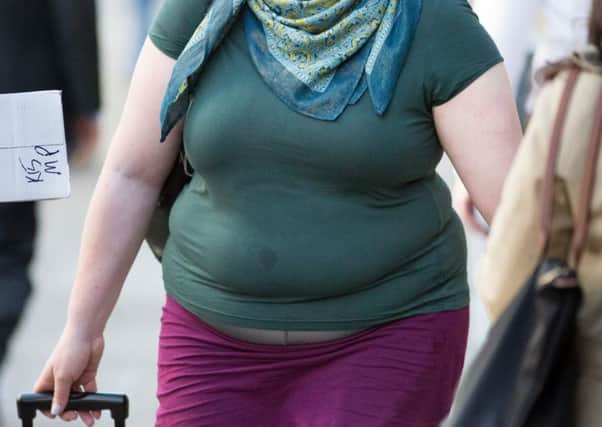Leaders: Healthy habits begin in the home, not in new laws


Many questions are prompted by the latest worrying figures on obesity, but two in particular stand out. The first is what governments and individuals can do about it. The second is more challenging: why is it taking so long for these warnings to effect change?
The figures from the Obesity Health Alliance compel attention in every household. Modi Mwatsama, director of policy and global health at the UK Health Forum and a OBA member, described the latest study as “a wake-up call for the government and shows a daunting future if no strong action is taken against the obesity epidemic”. But such “wake-up calls” have been sounded for years. The response so far has been to hit the “snooze” button in the hope that mere repetition will make the problem go away.
Advertisement
Hide AdAdvertisement
Hide AdReliance on the bare figures alone may be one reason why the message is not getting through. The study warns that more than seven million cases of diabetes, cancer, stroke and heart disease will occur in the next 20 years due to people being too fat. Current predictions are that 76 per cent of men and 69 per cent of women will be overweight or obese by 2035 – around 40 million adults in the UK.
They bear out a separate report from the United Nations that the UK has the highest level of obesity in Western Europe. And Professor Nick Finer of University College London’s Institute of Cardiovascular Science, has said that estimates of the economic costs of obesity will bankrupt the NHS. These warnings, together with the OHA report, leave in little doubt that obesity is the biggest public health crisis facing the UK today.
But daunting though the challenge is, we are by no means helpless. There is much that individuals and households can do to change their dietary habits, and particularly those of children if we want to avoid having to bury them before their parents.
There is also the legislative route of government regulation and controls on what goes into our food and drink – prescribing limits on sugar, fat and salt in prepared foods, for example. But while this may carry the appearance of firm and effective action, such regulation would be bureaucratically cumbersome, costly to administer and difficult to enforce. It also risks a negative reaction from the public as bossy and over-bearing move.
However, there are practical and positive measures that government can undertake, learning from its campaigns against smoking. It can impose tough limits on junk food advertising and impose greater disclosure on sugary drinks and foods.
But most efficacious of all would be a well-resourced programme of information and education to promote healthier eating and lifestyles. This in turn would encourage companies to adjust food manufacture to take account of consumer changes in the market-place, and to promote healthier food options.
And individuals and households can play an important part – by changing the way we eat and by changing daily habits to help combat the worst effects of sedentary lifestyles. The best response is the one that begins at home.
Iraq’s humanitarian tragedy
If the siege of Fallujah has not already long established itself as a Middle East horror story, latest reports from the devastated city put its plight beyond doubt.
Advertisement
Hide AdAdvertisement
Hide AdA humanitarian crisis on an appalling scale is now unfolding as civilians struggle to flee with their lives. The UN estimates that 80,000 have already fled as Islamic State fighters battle to resist a four week government offensive to drive them out. A further 25,000 civilians are thought to be on the move and in the most dire of circumstances.
Aid workers, overwhelmed by the scale of the exodus are struggling to provide food, water and medicine to people who are sleeping in the open in hopelessly overcrowded camps outside the city. Much of the city is now in ruins and civilians tell of harrowing escape stories.
Some have been caught in crossfire, others have drowned in the Euphrates as they sought to swim to safety. Aid supplies are running dangerously low and of adequate relief supplies there is little sign. The government of prime minister Haider al-Abadi is already struggling to meet the needs of more than 3.4 million people across the country who have been displaced by conflict.
Many in the West have now become inured to such reports of deadly conflict. A helpless fatigue has set in, adding to a determination not to be drawn in for fear of making the conflict worse.
The siege shows no sign of ending. But with a humanitarian disaster now in prospect the Iraqi government has to step in and act with aid and emergency supplies. The rest of the world, meanwhile, should give support to relief agencies to enable them to do what they can to avoid the worst.